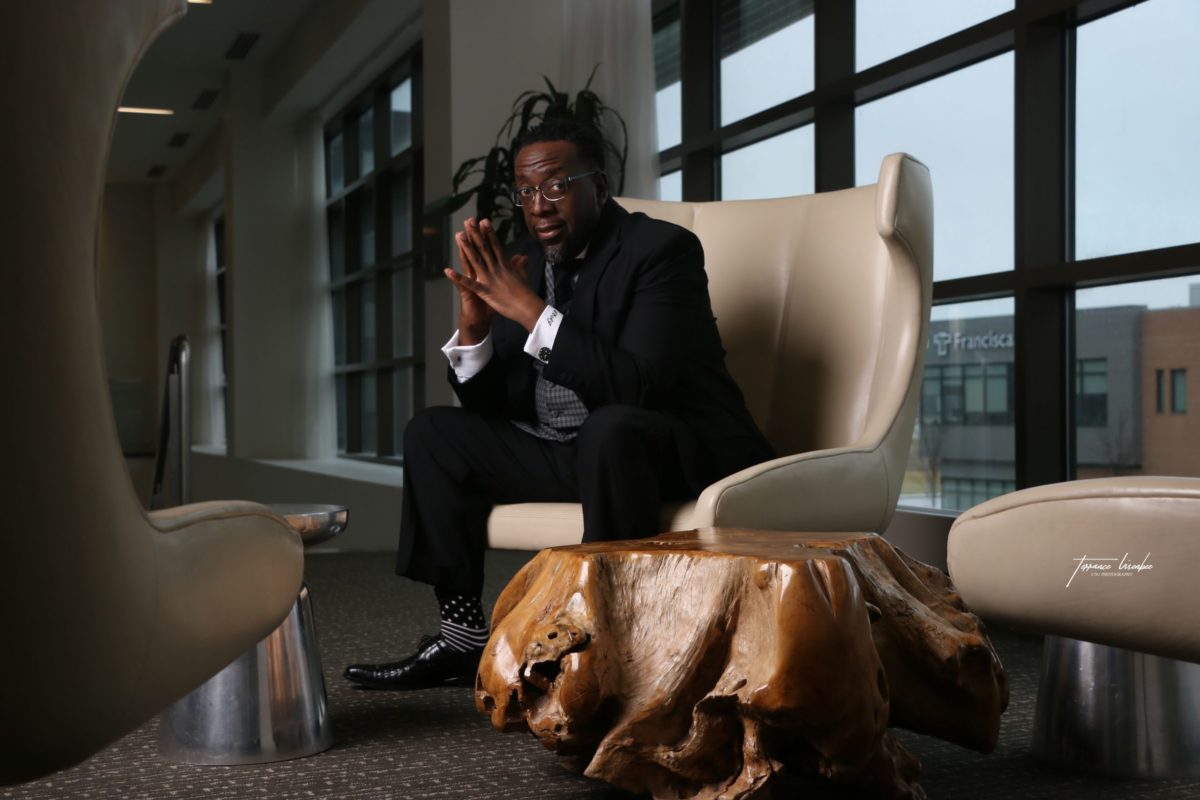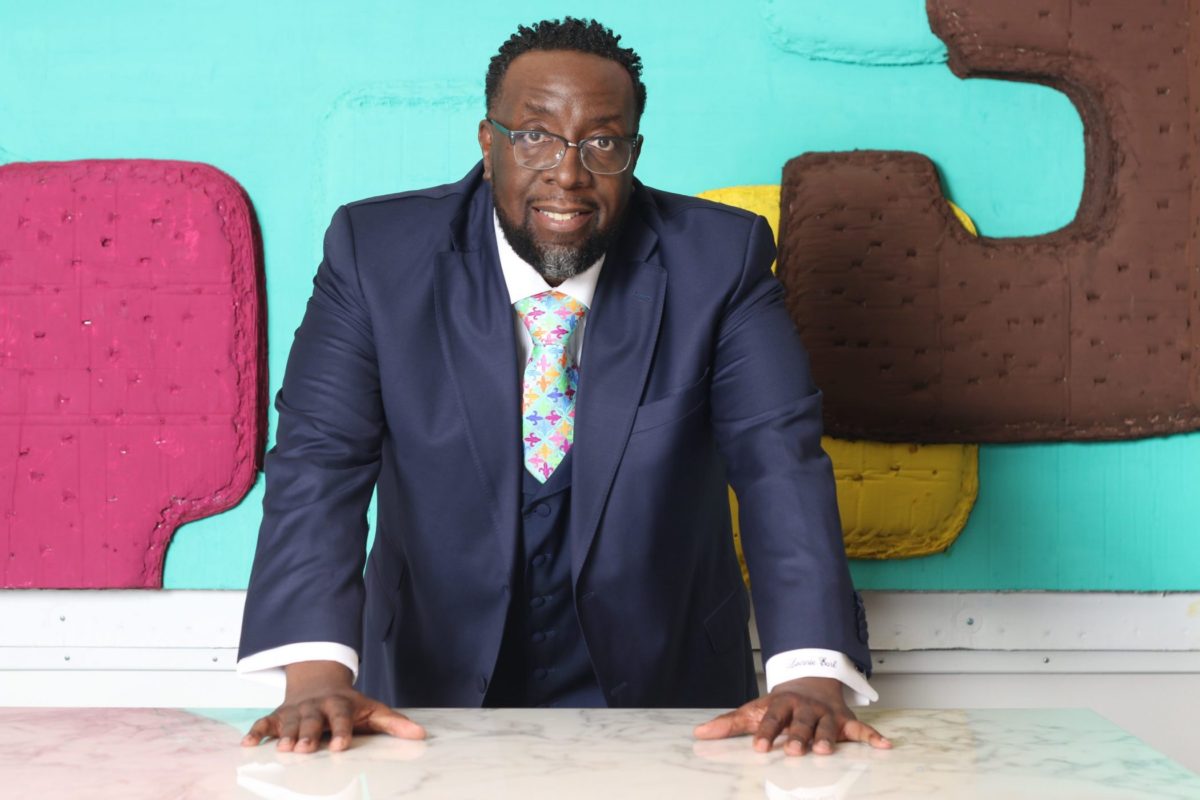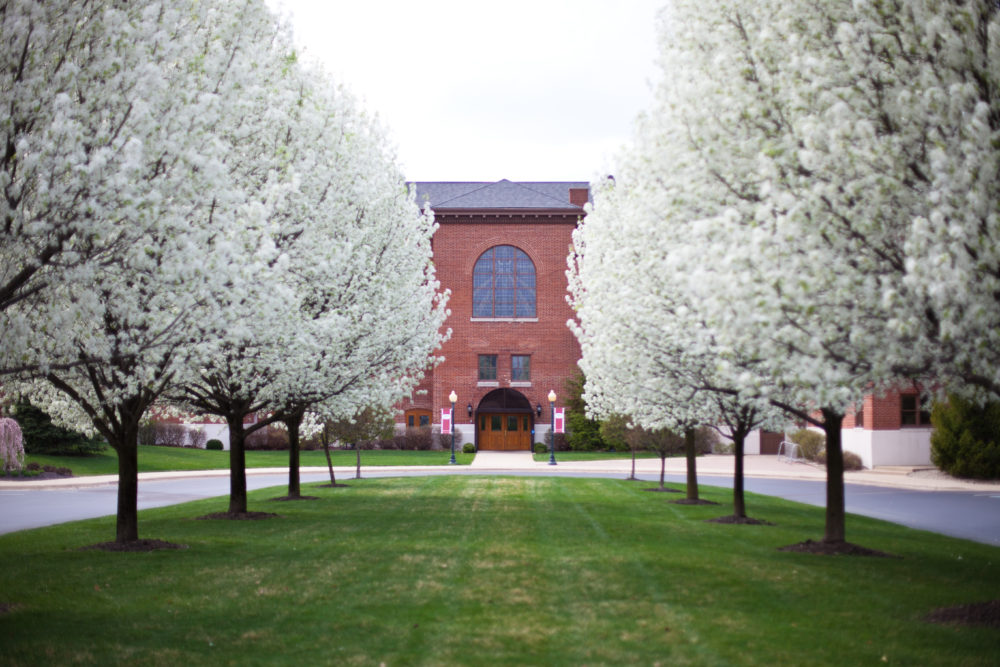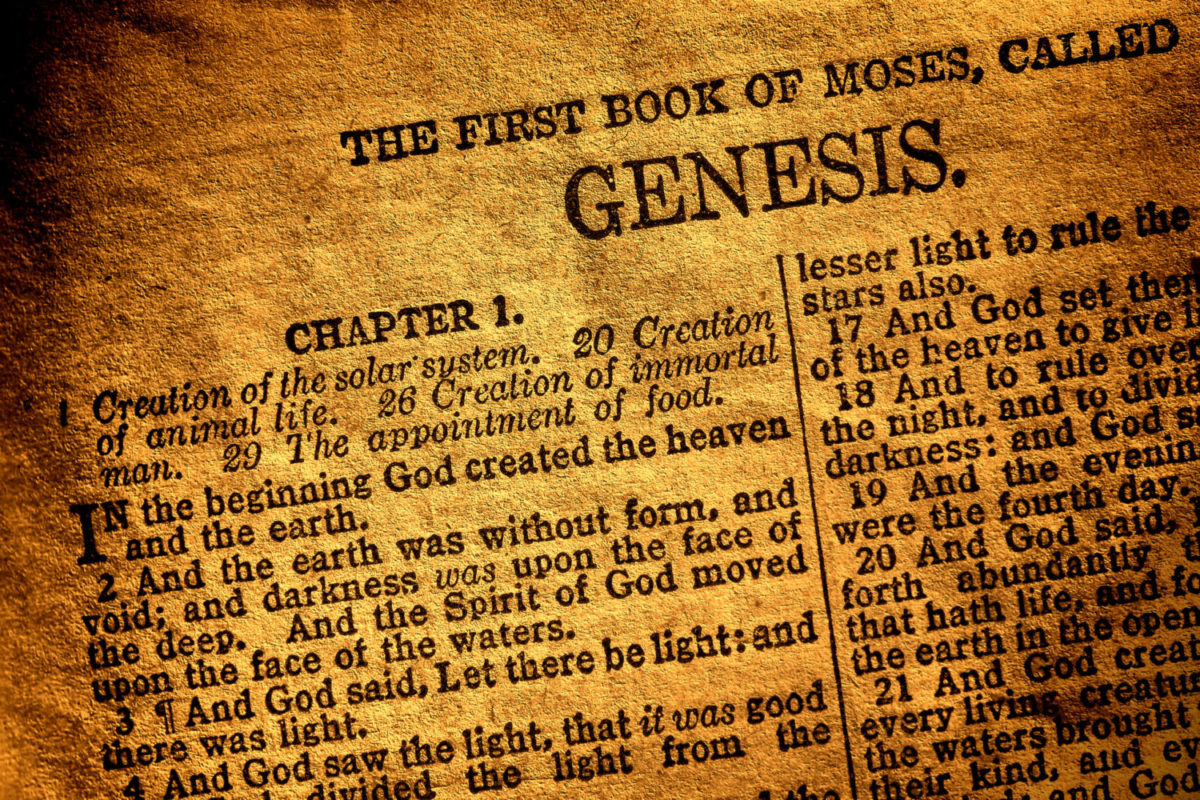February 9, 2021
Seasoned Pastor of 15 Years Enrolled in Grace Seminary Divinity Degree
Written By Grace Theological Seminary
Tagged With Preaching & Pastoring Master of Divinity Alumni Stories

*As featured in the Grace Story Magazine.
Longtime preacher Lonnie Anderson, who graduated from the M.Div. Divinity Degree program in 2012, is a masterful communicator. Even his stream of consciousness is eloquent. His depth and warmth convey profound truths with an authenticity and humility that need to be experienced in his own voice.
As the senior pastor of Mt. Pisgah Missionary Baptist Church in Kokomo, Indiana, Anderson has been growing a thriving multicultural church over the last two decades. It’s the kind of place where nobody can quietly slip in and out. “We sing a welcome song to every visitor,” Anderson laughs.
About a decade ago, Anderson decided — at the age of 35 and as a seasoned pastor of 15 years — to enroll in Grace Theological Seminary’s Divinity Degree. program. Since graduating in 2012, and while pastoring full time, Anderson drives three hours round trip every Monday night to teach “Exploring the Bible” to about 50 Grace freshmen. They affectionately call him “Revvy-Rev,” and many of them drive that same three-hour round trip to hear “Rev” preach in Kokomo.
Grace Story recently caught up with Revvy-Rev Lonnie Anderson for an interview. Enjoy some of the highlights.
Grace Story: If you could identify three principles that have impacted you and your ministry the most, what would they be?
Anderson: “Never make God prove that He can do this without you.” We have to stay humble, and give Him the glory. We cannot ever assume any of His glory or recognition; the spotlight remains on Him at all times. God is not going to share His glory, and I do not want to come into any conflict with God.
Second, as a pastor, “Before you try to lead them, love them.” We have to recognize that as pastors, we’re called into a life of service. I pray we never lose focus that we’re to love the people we lead. If people know that you love them, they’ll let you lead them — even if they don’t agree with you.
Finally, “It’s OK to get out of the box, but stay in the Book.” Tradition is nothing more than frozen success and the church being in love with who she used to be. It’s OK to be innovative and progressive but never OK to be doctrinally incorrect. The key to staying out of the box is keeping the Bible as our guide. It’s the Gospel and genuine and authentic love that the dying and lost world needs.
Grace Story: What’s been the hardest season of your life, and how did you get through it?
Anderson: I hope I don’t cry … It was the passing of my father who was my greatest role model. He died April 11, 1999. I was 25 years old. I was preaching in Alabama when I got word he died of a heart attack. I had just talked to him on the phone the night before, and he was completely fine. I was scheduled to fly to Sacramento, California, to preach two days later, and I was going to see him then.
I went through a period of being angry at God, myself and my father. I didn’t understand why God would take my father, my hero, when there were other fathers who were bums — why didn’t He take them? I was also angry at myself, knowing I was supposed to arrive to see him on April 13 — how come I didn’t go a few days earlier? And I was angry at him [my father]: “You knew I was coming, and you left me.” It was a numbing period in my life where I experienced the full measure of grief.
But because of the grief, I learned how to be a better pastor, especially to those who have lost loved ones. It was a period of pain and at the same time, experiencing God’s presence. He told me something: “It’s OK not to be strong, but it’s not OK to be faithless.” In my weakness and sadness, I found that God is a keeper of His word, that God’s presence is what you need. If it weren’t for the fact of eternal life through Jesus, I wouldn’t have made it. I had to wrestle, and I do mean wrestle — WWF-style wrestling — with my peace and my joy.
I had to believe God is sovereign. I just heard a quote: “It’s His world and His rules.” I got peace when I accepted that.

Grace Story: You were already doing what you wanted to do. Why did you go back to school to pursue a Divinity Degree Program?
Anderson: The Lord had to work through a lot of my excuses: I’m too old, I already have two bachelor’s degrees and a master’s degree. But the Lord kept harassing me to enroll in the M.Div. program. I told Him I couldn’t find any schools that still believed in the Word of God. But the Lord just kept at me.
I was born and raised in California where there were different nationalities, origins and skin colors. When I moved to Selma, Alabama, things were still black and white. I couldn’t believe it. The West Coast was a melting pot, but Alabama was so polarized along racial boundaries. It wasn’t what I was used to. So when God called me to Grace’s Divinity Degree, which He showed me was a Bible-believing institution, I was hesitant because there weren’t too many people who looked like me. But it was so refreshing because even though I was one of only a few African-Americans, there were a lot of people who believed like me and loved like me. He also introduced me to some of the greatest minds on this planet. The professors were in line and in touch with the Scriptures. They literally poured into us and modeled being a vessel: not a bucket where blessing is stored but a pipe that blessings pour through.
Grace Story: If you were able to ensure your students at Grace understood just three things, what would they be?
Anderson: The Bible is still the unadulterated voice of God and still relevant. The Bible doesn’t contain the word of God, it is the word of God. God’s Word is still as real and relevant and rich as it has ever been; even though our culture changes, His Word stays the same. Secondly, I want them to know God has a plan and design for their lives. They are not here by accident. Yes, get your bachelor’s or pursue an M.Div. program, but leave class knowing God has a plan, and He loves you. Thirdly, in this Christian walk, there are low moments, but you never have more mess or guilt than God has mercy and grace.
Grace Story: What do pastors and leaders need to do to build and sustain a multicultural church?
Anderson: Rule No. 1: Keep politics out of your pulpit. Especially with this political climate. Two, you have to teach. You can’t assume people get it. Since Sunday is still the most segregated hour of the week, God is calling for pastors to teach and set the climate in such a way that other cultures will feel comfortable coming into it. If pastors want a multicultural church, they must teach like it, love like it, invite like it. They must make the effort. It’s real work. Pastors need to ask: What are we bringing them into? What attitude will they be met with? What is the acceptance level here? Pastors need to look at what is happening in their congregation now. When other nationalities and races come into church, how embracing are we? Are we going to be inclusive in our fellowship? Start there.
Are you like Anderson? Do you feel God nudging you to enroll in a Divinity Degree program?
Our M.Div. program has concentrations in:
Share
Tagged With Preaching & Pastoring Master of Divinity Alumni Stories


